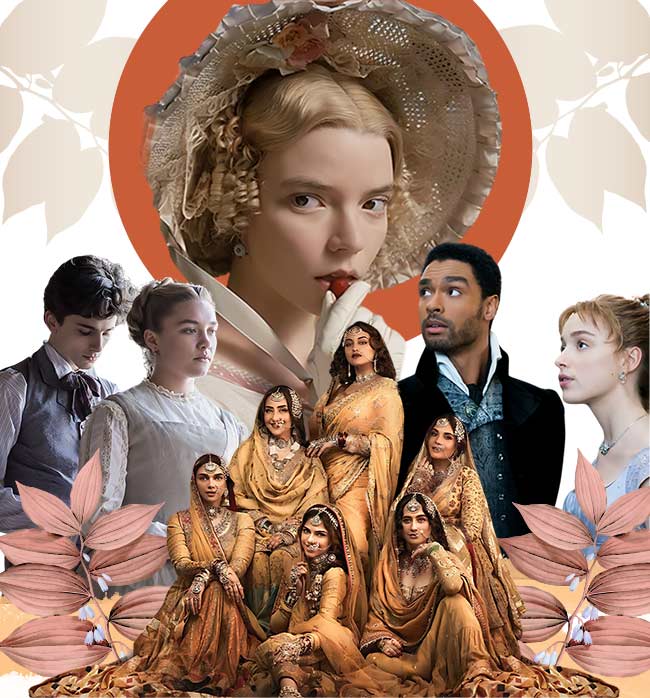
Why do we love period dramas so much despite what they stand for?
What did you stream through May? If your answer (or your social media feed) screams Bridgerton or Heeramandi, you are not alone. Bridgerton, in particular, seems to have become a cultural phenomenon, with its opening season accumulating a staggering 929.3 million viewing hours, making it Netflix’s fourth biggest series ever. This record underscores the allure of historical narratives, blending opulence with drama to captivate global audiences.
But why, though?
This fascination with period dramas raises an interesting question — why are we so captivated by the past? Recent films further underscore this trend.
One reason for this enchantment is our disillusionment with the quotidian world and a yearning for simplicity and grandeur at the same time. The lavish costumes, grand estates, and intricate social rituals depicted in these dramas give you an idealised version of the past, a stark contrast to the often mundane realities of contemporary life. The elements of attraction, from the elegance of period fashion to the tantalising drama and forbidden romances, create a captivating escape. It’s almost all that we remember in the long run (looking at you, Downton Abbey).
More than just glamour
The suspension of disbelief in these films is achieved through selective representation. Adaptations of Jane Austen’s works epitomise this approach, blending authenticity with artistic exploration to highlight the wit and charm of their characters, all while downplaying harsher realities.
Our current infatuation with period dramas reflects a broader desire for escapism. These films and series offer not only a retreat into a romanticised past but also a lens through which we can explore contemporary issues of identity, representation, and social dynamics. What do you think?